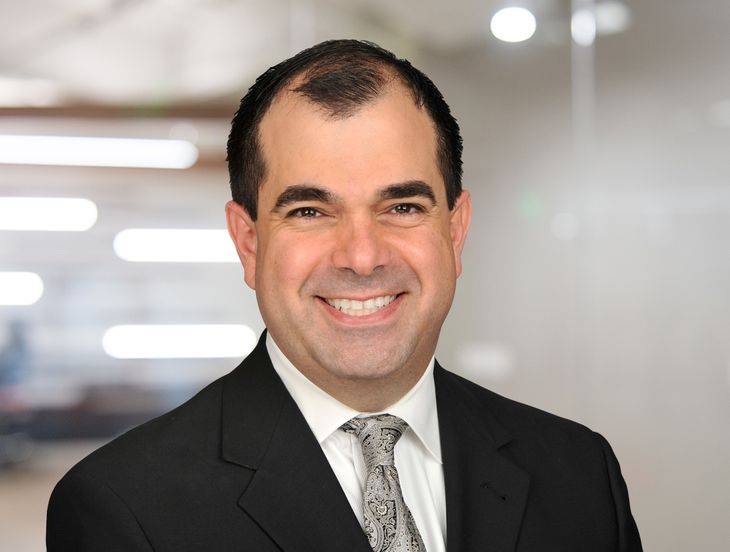Mandatory Class Waivers Struck Down By 9th Circuit
Employers Lose Latest Battle In National War
Insights
8.22.16
Employers received their most bruising loss in the ongoing war involving class action waivers today, as the 9th Circuit Court of Appeals became the second federal circuit to strike them down as illegal. When the 7th Circuit issued an opinion earlier this year and became the first appeals court to make such a ruling, employers could view the decision as an anomaly and take comfort in the fact that all other courts reaching a decision had upheld class waivers. But today’s decision changes the national legal landscape (Morris v. Ernst & Young).
The 9th Circuit covers a wide swath across the western U.S. – California, Washington, Arizona, Nevada, Oregon, Hawaii, Idaho, Montana, and Alaska – and this decision will immediately impact tens of millions of workers. It also could mark the beginning of a trend, as employers should be concerned that the NLRB’s sustained attack against class waivers has now gained significant momentum.
Background: Class Waivers Are Popular
Agreements requiring employees to submit workplace claims to an arbitrator instead of a judge have become increasingly commonplace in today’s workplaces. These agreements are a favored tactic of the modern employer, lowering the cost of litigation and introducing some much-welcomed efficiency to the resolution of workplace disputes. Due to a recent series of victories at the Supreme Court over the past five years heralding the “liberal federal policy favoring arbitration agreements,” the use of mandatory arbitration agreements has become safer and less apt to be challenged in court.
But mandatory arbitration agreements in and of themselves do not protect employers from their biggest fear – a class or collective action. Consequently, rather than simply requiring employees to bring workplace claims through arbitration instead of court, employers have regularly incorporated into their agreements class and collective action waivers. Pursuant to these waivers, employees agree not to pursue claims against their employer on a class or collective basis. The result of a mandatory arbitration agreement with a class and collective action waiver is that a worker’s only avenue for redress is limited to single-plaintiff arbitration hearings.
Labor Board Does Not Like Class Waivers
The National Labor Relations Board (NLRB), however, has issued several rulings striking down class action waivers as violating the National Labor Relations Act (NLRA). In 2012, in the infamous D.R. Horton case, the Board said that arbitration agreements are unlawful if they prevent employees from filing class action claims in court or arbitration.
Although that decision was rejected by a federal court and is therefore not considered “good law,” that has not stopped the NLRB from continuing to attack class waivers whenever possible. In the intervening years, the Board has issued several additional opinions coming to the same conclusion. Until recently, this theory has not found much traction in the courts.
Courts Had Consistently Upheld Class Waivers
Between 2013 and May 2016, three circuit courts ruled on this exact issue and determined that the NLRA does not prohibit class waivers. The 5th Circuit (Texas, Louisiana, and Mississippi) overturned the NLRB’s D.R. Horton decision in 2013, followed by the 2nd Circuit (Connecticut, New York, and Vermont) in the 2013 Sutherland v. Ernst & Young case, and the 8th Circuit (Arkansas, Iowa, Minnesota, Missouri, Nebraska, North Dakota, and South Dakota) in 2013’s Owen v. Bristol Care, Inc. In 2014, the 11th Circuit (Georgia, Florida, and Alabama) came to the same conclusion in upholding class waivers in Walthour v. Chipio Windshield Repair, although the decision did not directly involve the NLRB question.
Cracks Begin To Appear
On May 26, 2016, the 7th Circuit (Illinois, Indiana, and Wisconsin) became the first appeals court to adopt the NLRB’s position and strike down class waivers in the Lewis v. Epic Systems case. The court said that class waivers violate Section 7 of the NLRA because they interfere with workers’ rights to engage in concerted activity (in this case, class action litigation) for their mutual benefit and protection. The court opined that there is nothing quite so “concerted” as a piece of class action litigation, where employees band together to collectively assert a legal challenge to a workplace practice.
Since that decision was issued, the 8th Circuit once again came to the defense of class waivers in the June 2016 Cellular Sales v. NLRB decision, and a Massachusetts district court published a blistering 41-page opinion criticizing the 7th Circuit’s Epic Systems decision and describing in detail why class waivers should be upheld under the NLRA. Reading these two opinions, employers could have found some solace and hoped that the 7th Circuit decision would soon be considered an outlier.
The Dam Bursts: Morris v. Ernst & Young
On August 22, 2016, however, employers’ worst fears were confirmed when the decidedly liberal 9th Circuit Court of Appeals echoed the 7th Circuit’s reasoning and also determined that certain class waivers violate the NLRA.
In this case, the plaintiff worked for the accounting firm Ernst & Young, and like all new hires, he signed an arbitration agreement at the outset of his employment as a mandatory condition of employment. That arbitration agreement contained a class waiver which read:
Separate Proceedings. If there is more than one Covered Dispute between the Firm and an Employee, all such Covered Disputes may be heard in a single proceeding. Covered Disputes pertaining to different Employees will be heard in separate proceedings.
(emphasis added.) These kinds of class waivers seem to go hand-in-hand with arbitration agreements, because a mechanism that would permit class proceedings interferes with the fundamental attributes and advantages of arbitration.
Despite the existence of this provision, the plaintiff brought a class and collective action against his employer in federal court, alleging he and others had been misclassified as exempt from overtime under the Fair Labor Standards Act. The trial court ordered that the plaintiff and all others who felt aggrieved should pursue individual arbitration claims under the terms of the class waiver provision described above and dismissed the case.
The 9th Circuit reversed the decision and struck down the class waiver provision. Just as the 7th Circuit ruled in Epic Systems, the court held that employers interfere with the right of all employees – not just those unionized – to engage in concerted activity under the NLRA by requiring them to pursue claims in separate proceedings. Section 7 of the NLRA provides a statutory right to employees to engage in concerted activities for their mutual aid or protection, and the court determined this included class action litigation.
Although the employer defended its position by pointing out that the Federal Arbitration Act (FAA) mandates a liberal policy in favor of upholding arbitration agreements, the court was not swayed. “The problem with the contract at issue is not that it requires arbitration,” it said, “it is that the contract term defeats a substantive federal right to pursue concerted work-related legal claims.” By concluding that the rights established by Section 7 of the NLRA were substantive in nature and not just procedural, the court ruled that these rights could never be waived via a standard mandatory arbitration agreement or any other similar mechanism.
What’s Next For Employers?
There is hope that a full panel of 9th Circuit judges could agree to hear the case on an en banc basis and overturn the 2-1 decision. This could be especially true given that one of the three judges on the panel wrote a 17-page dissent labeling this ruling as “breathtaking in its scope and in its error.” However, absent any such ruling (or an interim order putting this decision on hold while an en banc review could be litigated), this decision is now the law of the land across most of the western U.S.
It could be crucial that the arbitration agreement, in this case, was mandatory, required to be signed by employees as a condition of their employment. The court’s conclusion states that “an employer may not condition employment on the requirement sign such a contract.” The court also cited favorably to a 2014 9th Circuit ruling (Johnmohammadi v. Bloomingdale’s, Inc.) where no NLRA violation was found given the fact that the employee had the right to opt out of the arbitration agreement and pursue class action litigation in court. Therefore, it appears that implementing non-mandatory agreements, or ones that include opt-out provisions, could be a way to avoid the same fate as the employer in this case.
If there is any silver lining to this decision, it is that there is now a clear circuit split among the federal appeals courts, increasing the odds that the dispute will be taken up by the Supreme Court in the near future. This is a fragile hope, however, as the Supreme Court sits in a state of uncertainty with a balance of four mostly employee-friendly justices and four mostly business-friendly justices. And with the possibility that Judge Merrick Garland could one day become the ninth SCOTUS justice, some observers have concluded that the issue of class waivers could be one most suited for a ruling in the NLRB’s favor.
Unless and until the 9th Circuit reverses its own decision or the Supreme Court intervenes and settles the matter, employers should be prepared to adjust to this new ruling. For those multistate employers operating across different judicial jurisdictions, be aware that the current patchwork of differing standards might require you to develop specific policies and practices for each location.
For more information, visit our website at www.fisherphillips.com or contact your regular Fisher Phillips attorney.
This Legal Alert provides an overview of a specific federal court decision. It is not intended to be, and should not be construed as, legal advice for any particular fact situation.
Related People
-
- Lonnie D. Giamela
- Partner
-
- Christopher C. Hoffman
- Regional Managing Partner
-
- Richard R. Meneghello
- Chief Content Officer


